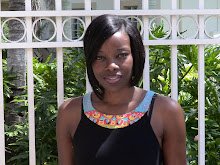Black people are bad, and they rob people. My seven-year old son overheard that statement in the school cafeteria.
When he mentioned it to my husband and me, we asked him did he say anything to the student. He told us that the student was not sitting at the same table as him and was not talking to him. He explained that he “overheard” the statement because he has “very good hearing”. I asked him what he thought or felt when he overheard the comment and he said that his thought was “that is so racist”.
Upon further probing, it became apparent that he was confused as to whether or not the statement was an accurate one. We were alarmed that he even considered that the statement could be true. This led us to ask the question “Do you believe what he said?” He replied with a statement even more troubling than his confusion—“Well, I always see black people who rob people on the news.” This undoubtedly, led to a discussion about the dangers associated with stereotyping and pre-judging others. We also discussed the difference between racism and pre-judging.
Lastly and most importantly, we did some “damage control”. Attending a school where 70% of the students are white and only 20% are black—and being the only black male student in your class could definitely make a kid feel isolated. We pointed out that in his experience he has never met a black person who robs people. We reminded him of all of the positive things that are happening in our family. We talked about his uncles, aunts, grandparents, brother, cousins and friends, reminding him of the qualities each exhibits. Then we told him to look at us—his parents, reminding him of the values that we have instilled in him and the methods and means we employ to ensure his physical, emotional, and social well-being.
By the end of our conversation, he had distanced himself from his initial perception. However, I was still concerned about the impact that such a statement could have had if we had not prodded him to share his thoughts. I was also deeply disturbed by the idea that the second grade student who made the statement had been misinformed and/or misguided and as a result, made an offensive remark based on what he perceived to be truth. Will he grow up believing that black people are bad? I also struggled with the idea of approaching the school administration to make them aware and perhaps, encourage them to introduce concepts like labeling, inclusiveness, and respecting differences.
This morning I told my son that I was going to meet with his principal to share his experience. I explained that I was not blaming the school principal because it was not her fault. I explained that in order to make things better, we have to make sure people know better. He said “Oh, I know what you mean. Yesterday, I saw that kid in recess…I ran after him—I had to run my fastest, and I told him that I heard what he said about black people”. He said that the kid replied “I wanted that to be a secret”. Then my son said to him “That’s not nice. You shouldn’t judge people by the color of their skin”. “I said it really nice too mom” he proudly shared. I asked him what he did next and he said “I just walked away…but the kid said that he was sorry”.
I’m sure my son learned a valuable lesson and I hope he taught the kid a lesson too. Hopefully, the kid will judge people by their actions and character, but chances are he’ll just be careful who hears him next time.
Tuesday, March 29, 2011
Subscribe to:
Post Comments (Atom)


No comments:
Post a Comment